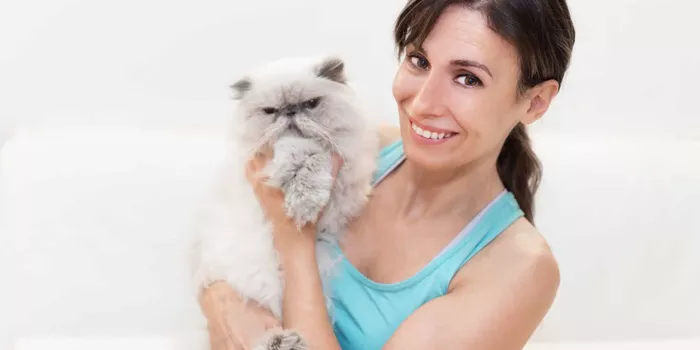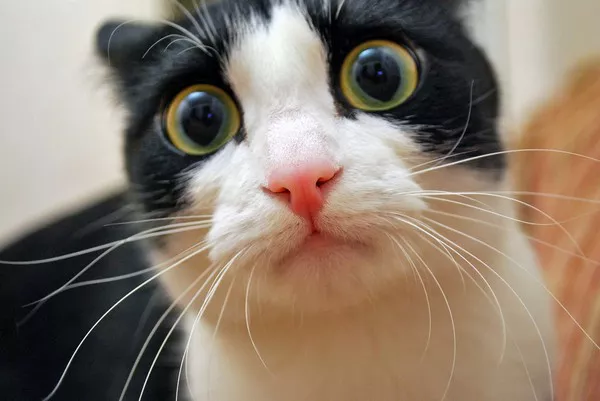Persian cats, known for their luxurious coats and regal demeanor, are among the most beloved feline companions in the world. Their affectionate nature and ability to bond with their human caregivers make them unique among cat breeds. This article explores the depth of attachment Persian cats can form with their owners, examining the factors that influence this bond, the behaviors that signify affection, and how to nurture a healthy relationship with these elegant creatures.
The Nature of Persian Cats
Persian cats are characterized by their calm and gentle temperament. They enjoy a serene environment and prefer to spend their time resting and receiving affection rather than engaging in high-energy play. This breed is known for its loyalty and often forms strong attachments to its human companions. Understanding the inherent traits of Persian cats is crucial in appreciating their capacity for attachment.
Characteristics of Persian Cats
1. Calm Demeanor: Persian cats are not overly active; they prefer a peaceful environment. Their calm nature allows them to form deep connections with their owners.
2. Affectionate Behavior: Persian cats are known to show affection through various behaviors, such as following their owners around, seeking attention, and enjoying cuddling sessions.
3. Social Creatures: Despite their independent streak, Persian cats thrive on social interaction. They enjoy spending time with their human companions and can become lonely if left alone for extended periods.
Factors Influencing Attachment
The attachment of Persian cats to their owners is influenced by several factors, including their environment, socialization experiences, and individual personality traits. Understanding these factors can help owners foster a stronger bond with their feline friends.
Impact of Environment
The environment in which a Persian cat lives plays a significant role in shaping its affectionate behavior.
1. Safe and Comfortable Space: Persian cats thrive in a safe and comfortable environment. A peaceful atmosphere allows them to express their affectionate nature more freely. Owners should create a calm living space, free from stressors that could make their cats anxious.
2. Consistency and Stability: Changes in the environment can lead to anxiety in Persian cats. Maintaining a consistent routine and familiar surroundings can help them feel secure, which in turn fosters affectionate behavior.
3. Emotional Atmosphere: The emotional climate of the home is equally important. A nurturing and loving atmosphere encourages Persian cats to bond more closely with their owners.
Role of Socialization
Socialization is crucial in determining how affectionate a Persian cat will be.
1. Early Socialization: Cats that are socialized early tend to be more affectionate. Positive interactions with humans and other pets during their formative months can help them develop a sociable and loving personality.
2. Consistent Interaction: Regular and meaningful interactions with their owners strengthen the bond between Persian cats and their humans. Engaging in activities such as grooming, playtime, and quiet companionship can enhance this connection.
3. Understanding Individual Needs: Each Persian cat has its own personality and preferences. Some may enjoy being picked up and cuddled, while others may prefer to maintain a bit of distance. Respecting these individual traits is essential for building trust and affection.
See Also: Do Persian Cats Need Air Conditioning?
Signs of Attachment in Persian Cats
Persian cats exhibit various behaviors that indicate their attachment to their owners. Recognizing these signs can help owners understand the depth of their cats’ feelings.
Following Their Owners
One of the most common signs of attachment is when a Persian cat follows its owner around the house. This behavior indicates a desire for companionship and a need for reassurance from their human.
Seeking Attention
Persian cats often seek attention from their owners by meowing, rubbing against their legs, or sitting on their laps. These actions are clear indicators of affection and a desire for interaction.
Cuddling and Physical Affection
Many Persian cats enjoy cuddling and will often curl up next to their owners or seek warmth from them. This behavior not only signifies affection but also a sense of security and comfort in their presence
Grooming Behavior
Grooming is an important bonding activity for Persian cats. When they groom their owners or allow their owners to groom them, it signifies trust and affection. Regular grooming sessions can strengthen this bond and provide an opportunity for owners to connect with their cats.
Building a Strong Bond with Persian Cats
To foster a deep attachment with a Persian cat, owners should engage in activities that promote trust and affection. Here are some strategies to enhance the bond:
Spend Quality Time Together
Quality time is essential for building a strong relationship with a Persian cat. This can involve simply sitting quietly together, engaging in gentle play, or enjoying grooming sessions. The key is to create a calm and loving atmosphere during these interactions.
Respect Their Space
Persian cats appreciate having their own territory. Providing a cozy space where they can retreat when they need solitude is important. Respecting their boundaries shows that you understand their needs, which can enhance their trust in you.
Understand Their Unique Needs
Persian cats have specific grooming needs due to their long fur. Regular grooming not only keeps their coats healthy but also serves as a bonding experience. Additionally, being attentive to their dietary preferences and health needs demonstrates care and concern, further strengthening the bond
Communicate Softly
Cats are sensitive to human emotions and can pick up on their owners’ moods. Speaking to a Persian cat in a soft, soothing voice can create a sense of comfort and companionship. This gentle communication fosters trust and affection over time.
Conclusion
Persian cats are not only known for their striking appearance but also for their capacity to form deep attachments with their owners. Their affectionate nature, influenced by their environment, socialization experiences, and individual traits, makes them loyal companions. By understanding the signs of attachment and engaging in nurturing behaviors, owners can cultivate a loving relationship with their Persian cats. Ultimately, the bond between a Persian cat and its owner is built on mutual respect, understanding, and love. By creating a safe and comfortable environment, providing consistent interaction, and respecting their unique needs, owners can ensure that their Persian cats thrive emotionally and physically, leading to a fulfilling companionship that lasts a lifetime.
Related Topics
How to Clean Persian Cat Ears: Step-by-Step Guide
























